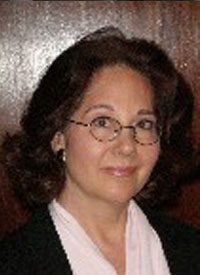
First, the online lessons must be separate from public schools. Take the recent debate over a Herndon, Virginia-based provider of full-time public virtual schools called K12 Inc., with its various nationwide components, such as Virginia Virtual Academy, Florida Virtual School, and Massachusetts Virtual Academy. These are always incorporated into one of the states’ official public school districts. Thus, the twist on K12 Inc.: the word public, meaning tax-supported, and therefore subject to government oversight, with all the various “strings” and biases that go along with the federal government’s schools.
K12 Inc. is presented “as a way to teach a small segment of the home-schooled and others who need flexible schooling.” “For many kids, the local school doesn’t work,” the Washington Post article quoted Ronald J. Packard, chief executive and founder of K12, as saying. He added: “And now, technology allows us to give that child a choice. It’s about educational liberty.”
Post writers Lyndsey Layton and Emma Brown allow that “virtual education has evolved into an alternative to traditional public schools for an increasingly wide range of students — high achievers, strugglers, dropouts, teenage parents and victims of bullying among them.” On the other side are the professional critics, such as scholars Kevin G. Welner and Gene V. Glass at the National Education Policy Center at the University of Colorado. They insist that full-time “cyber-schools” are largely unregulated (and maybe impossible to regulate). State Board of Education member, David M. Foster, cites a typical complaint about homeschooling: the supposed lack of socialization. Others (usually public school advocates) complain that virtual classrooms siphon off public school resources.
The socialization criticism dismisses the fact that socialization is no longer equated with problem-solving or “teamwork.” Its evolution is no longer a selling point with many parents. Instead, the public school culture has morphed into a peer pressure-cooker, both ugly and toxic, owing mostly to educators steeped in child psychology, which basically establishes teachers as buddies and pals, instead of providers of leadership, guidance, and discipline.
It is instructive here to back up a few years, to the Clinton administration, when a program called School-to-Work (STW) and “reform” legislation known as Goals 2000 were the mantras du jour. J. D. Hoye, tapped to head up Clinton’s National STW office in November 1994, essentially foretold what would happen as increasing numbers of parents of every political persuasion opted their children out of the public school environment. Hoye had this to say when she was asked in an interview for the U.S. Department of Education’s Northwest Regional Laboratory newsletter as to how government expected to apply its massive regulations to children who were not in a state school: “Our issue is it’s for all kids. And all means all — all does not mean some.”
Hoye went on to provide a written definition for “all students” that ran a lengthy paragraph, specifying everything from gender, to race, ethnicity, socio-economic background, limited-English proficiency, school dropouts, migrant children, and finally, as almost an afterthought, “academically talented children.” But the eye-catcher was this comment: “Most of those kids we’ve got through other agencies: …adult and family services, teen parent programs, corrections programs, and other alternative learning programs…. We’re serious. All means all.” This remark — under an STW-Goals 2000 label — laid the groundwork for federal control of all youngsters, whether they attended private schools, religious schools or were homeschooled.
Now, with the surprising popularity of virtual, online learning concepts, government wants to appear to “embrace” the idea by treating virtual learning like a charter school, while it buys educrats time to figure out how to regulate it and standardize both the environment and the curriculum. Thus, the Post’s article’s allusion to some “90 pounds of other educational materials shipped to families by K12.”
Parents are quick to see the advantages of homeschooling, even with the oversight and extra paperwork: Without the unnecessary distractions, commutes, and discipline problems associated with public schools, kids actually learn faster, retain more, and are able to pursue other interests, usually with children their own age. As per the Post article, one 10-year-old girl, “a fast learner … spends five hours a day practicing gymnastics.” An 8-year-old boy has “blossomed with [Mom’s] one-on-one attention … [and] is reading fluently for the first time.” Many zip through what their peers are learning in physical classrooms and are ready to take on college level course work sooner, if not go on to a physical university. Instead of whiny, baby talk nearly through junior high, and the “attitude”-laden grunts so characteristic of the youngsters in a public school environment, homeschooled students (virtual and otherwise), are conversing pleasantly with adults. Online classes cut across income levels — a feature which, in the end, will help dissolve class warfare instead of augmenting it — lead to fewer, more manageable incidences of bullying and peer pressure; and set a different sort of standard for academics — i.e., this is the child’s job, not just a nuisance interspersed among his or her extracurricular activities.
That said, all virtual classrooms are not alike.
Parents see the K12 Inc. concept as an alternative to expensive private schools, which today can run upwards of $23,000 per year, pricing out middle-class parents who, up until the mid-1970s, could still manage it. They often fail to explore some of the other online classroom options — and stop with just K12 Inc. — if only because it is seen as free and “accredited,” meaning government-approved. No one can dispute, of course, that it is better than no alternative at all. But the not-so-subtle surge of curricular propagandizing (portraying man-caused global warming as real science, homosexuality as just one of many acceptable lifestyles, etc.), privacy-invading testing/surveying (personal “assessments” that barely test subject matter), and increasing government intrusion into the home will end up carrying a price in a political climate where the biggest teachers union, the National Education Association, tries to label homeschooling “a form of child abuse.”
But many parents are taken in by the laundry list of big names associated with K12 Inc., which was originally funded with venture capital and private donations from the likes of financier-turned-philanthropist Michael Milken and Larry Ellison, chief executive of software/hardware giant Oracle Corporation. For street-creds, one can’t top the household-name board, which includes former K12 chairman William J. Bennett (former Education Secretary under President Ronald Reagan and drug czar under President George H. W. Bush), and other high-profile entities, written up in the Post article. Today, say the reporters, “K12 teaches about two out of every five students in full-time online schools,” the next largest competitor being “Baltimore-based Connections Education.” Sheer size and reputation, then, can and usually do trump other options.
But other options may be a lot more appealing. Take, for example, Freedom Project Education: It offers a classical education that does not exist in today’s public schools — charter, magnet, virtual, or otherwise — and sometimes not in private facilities, either. In curriculums modeled on public school offerings, students rarely learn rhetoric, philosophy, or logic, even though these were staples of earlier high-school fare. Instead, students are given only selected, trendy pieces of literature (if they read at all). They typically are not asked to write frequent, thoughtful essays. They do not know the difference between dry wit, farce, and satire. Even the basics of comprehension, math, and grammar are not taught, as teachers whose preparation is rife with psychology, are not familiar with methodologies necessary to transmit rigorous, classic (and indispensable) subject matter. Most teachers teach kids to stay in school and off the streets, and to be politically correct.
Freedom Project Education (FPE), by contrast, locates educators who have reached beyond the fabricated offerings of typical “teacher-ed” programs, with depth and a track record of presenting solid curricula based in the tradition of the nation’s Founders. FPE instructors must prove they are able to transmit their lessons in a manner comprehensible to parents and young people who for the past 40 years typically have had little exposure to a proper education, and therefore often are not accustomed to what one even looks like.
While public schools are busy accommodating every harebrained fad that comes along, the advent of online options like K12 Inc. are giving educrats fits because suddenly they have to deal with the problem of allowing parents to preview materials. Should government succeed in cutting parents out of that process so that “no one can get between that child and that curricula” — to quote an infamous comment from Dustin Heuston, then-head of Utah’s World Institute of Computer-Assisted Technology (“Discussion–Developing the Potential of an Amazing Tool,” Schooling and Technology, Vol. 3, Planning for the Future: A Collaborative Mode, compilation from Southeastern Regional Council for Educational Improvement conference, p. 8) — then they will have to promote the government line or get out of the tax-supported online system altogether. If, however, government fails to solve the problem of control over parents and curriculum, then the physical public school may well implode on its own, given America’s downward spiral on international scores in substantive subjects coupled to safety issues.
Meanwhile, FPE and other private options remain up front about their curricula, providing a product parents can trust. One can research the smorgasbord of cyber-educational options by checking out such sites as this. Or just type “virtual home school” into a search engine. But watch out for the term “accredited.” For now, it may provide one’s child with the necessary boost to secure a slot at a coveted university, but may not be everything a parent hopes for.
_________
Beverly K. Eakman began her career as a teacher in 1968-1974. She left to become a science writer for a NASA contractor, and became editor-in-chief of NASA’s newspaper in Houston. She later served as a speech writer and research-writer for the director of Voice of America and two other federal agencies, including the U.S. Dept. of Justice and the late Chief Justice Warren E. Burger. She has since penned six books and scores of feature articles and op-eds covering education policy (including two award winners), data-trafficking, science, privacy, mental-health, and political strategy. Her detailed bio, speaking appearances, e-mail, and links to her books all can be found on her website: www.BeverlyEakman.com.


